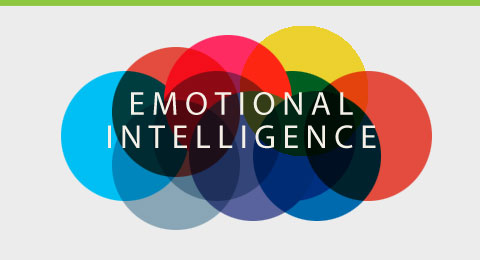Is Our Emotional Intelligence Connected to How Much Money We Make?
— November 29, 2016

“Emotional intelligence is a way of recognizing, understanding, and choosing how we think, feel, and act. It shapes our interactions with others and our understanding of ourselves. It defines how and what we learn; it allows us to set priorities; it determines the majority of our daily actions. Research suggests it is responsible for as much as 80 percent of the “success” in our lives.” ~ J. Freedman ~
A great deal of research has shown a strong relationship between our levels of emotional intelligence and how successful we will be in our lives, not only in the workplace but in all areas. But, is there any direct relationship between emotional intelligence and how much money we make? Some research has shown that there is a relationship between the two.
A study, published in November of 2014, looks at how the ability to recognize emotions (ERA) is associated with annual income. They used a sample of 142 employees—peer—supervisor triads taken from a very broad range of jobs and organizations. They found that there was a direct relationship between people’s ability to recognize the emotions of others and how much money they earned per year. People’s emotional abilities allowed them to better process affect-laden information in a way that helped them to navigate the social world of organizations and use this in a way that led them to become more prosperous.
Another study involved researchers from the University of Bonn in Germany. Volunteers were asked to identify the various emotions shown to them through a series of images and voice recordings and asked to try and determine their level of emotional intelligence. As more organizations recognized the importance of teamwork and collaboration, the researchers set out to see if any concrete results could be determined in terms of people’s emotional intelligence levels. Before organizations committed to using resources to determine emotional intelligence of new hires or develop their existing workforce, they were interested in discovering if increased emotional intelligence would result in increased performance results. The results of all of the volunteer’s ability to recognize emotions were tracked and the researchers looked deeper into the background of the participants. As well as asking for information about them from their coworkers, they also looked at some basic criteria, such as levels of income.
It was discovered that those who had the ability to recognize emotions received higher incomes. They were also rated to be more socially skilled and were more likely to earn increasing salaries than those with lower scores. The researchers believed that this difference had to do with the ability to recognize moods and behaviours that in turn lead to more effective working relationships with coworkers as well as bosses. It is not much of a stretch to see that developing good working relationships with one’s coworkers and bosses leads to increased opportunities for promotion and increased earnings.
One of the largest studies on the relationship between emotional intelligence and income was carried out by Dr. Travis Bradberry and Nick Tasler, M.S. Using the Emotional Intelligence Appraisal, they tested the emotional intelligence (EQ) of over 42,000 people. One benchmark that was compared in the study was the EQ scores to annual incomes. When mapped out on a graph. the results showed that regardless of the level of EQ, when the scores increased, so did the income levels. Overall the survey found that people with high EQ’s made on the average of $ 29,000 more than people with low EQ’s. It was discovered that on the average, every point increase in emotional intelligence resulted in an annual increase in salary of $ 1300. The authors of the study believed that the reason for this was that people with higher EQ delivered more value to their companies. They were able to do their job more effectively, make better decisions and work more effectively in numerous other areas which lead to increased productivity for the organization and in turn increased their income.
Many people in organizations are already aware that there is a benefit to developing EQ skills. There is a growing recognition that having self-awareness and an ability to tune into others emotional cues are important aspects of building strong teams and building loyal relationships with customers. Yet for people like Dr. Bradberry, who has been working in the field for many years, he has noted there is still a hesitancy, or unwillingness to making the development of EQ skills a priority. This reluctance to priorize EQ and put resources towards developing it has been found in talking to their trainers and customers. Many organizations profess that they believe in the value of emotional intelligence and see the benefits; yet they still have it in the back of their minds that it is a luxury and something that should be looked into once the more serious work is completed. What they are looking for is an answer to the proverbial question: What’s in it for me? Dr. Bradberry hopes that the results of his research will answer that question.
Business & Finance Articles on Business 2 Community
(48)












